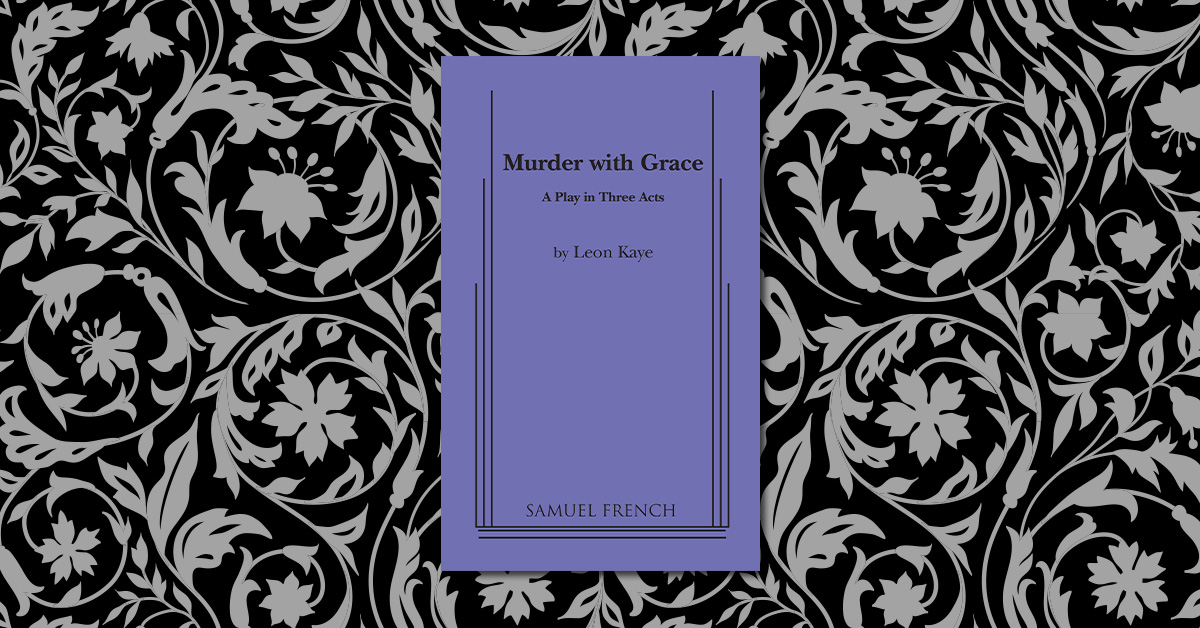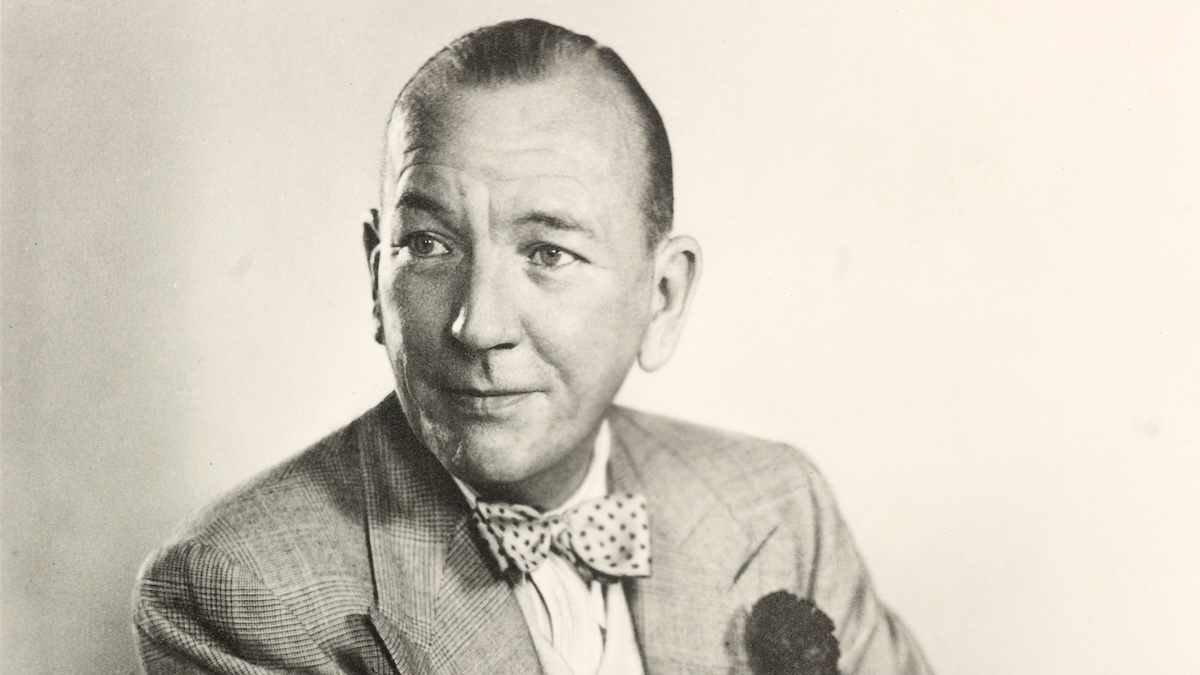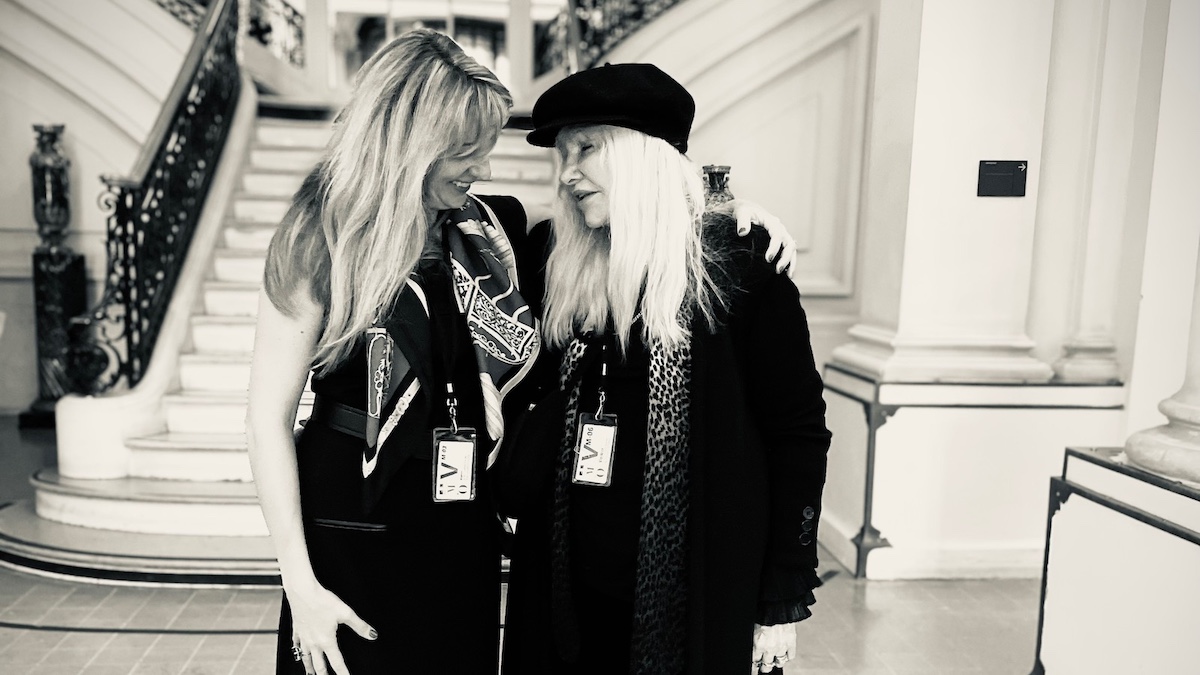
To relay how I came up with the inspiration to write the stage play Murder with Grace would be disingenuous on my part, because the play actually started out as a screenplay. I was no thespian at the turn of the millennium – more a movie lover. And after reading an article about the crazy money paid for screenplays, I thought I could easily write a good low-budget comedy that earns serious money. A local person upgraded and gave me his old computer, and I thought this was some form of divine intervention. I was destined for Hollywood stardom.
I had some modest success with readers and agents with my first few scripts, so the thought was always, the next one would be the big one. I was improving my craft. I just needed the right vehicle to score with Hollywood.
After watching the Pride and Prejudice miniseries that was produced in England with Colin Firth, my wife suggested why not write a modern day film with Jane Austen as a spirit or muse? This could be great fodder for comedy in that many are familiar with the genre. I gradually warmed to the idea and started boxing out a screenplay, Plain As Jane, the story of a young woman who wants to be a romance novelist and is tutored by the spirit of Jane Austen. Of course, Jane’s meddling backfires and lands the young woman in a relationship where a difficult choice has to be made — and then Jane leaves the heroine in the third act to make decisions for herself.
Twenty pages into the script, I realized that I could not write a script with Jane Austen as a character unless I knew very well how she spoke and acted. I am a modern-day male. I do not know when to use “shall” and when to use “will.” When is it proper to call a man by his first name and not Mister? I did not use words such as “endeavor” and “vexation” naturally. So I needed to do serious research.
I had seen more than my share of Austen screen adaptations, but had never heard of Northanger Abbey, so took the novel out of the local library and proceeded to read, notebook in hand, jotting down expressions used and trying to pick up on the types of things Jane might say or do.
If you are not familiar with the story, the central character, Catherine Morland falls in love with Henry Tillney and spends time with Henry’s family – his sister, Eleanor, and father, The Colonel. As I read, I began to laugh realizing that Jane Austen was setting Catherine up for a great egg on her face. The father is pursuing the young woman but she is blind to his advances. Here is poor Catherine trying to ingratiate herself to the old man when he is actually going to propose to her. I imagined how the Colonel would propose, and how she could misinterpret the proposal, thinking it was on the behalf of Henry. And then her expression when she realizes what is being asked. Oh, how funny! Jane Austen, you are a comic genius!
But that is not where Austen went with the novel. The Tillney family was being gracious to Catherine and did want Catherine to marry Henry. I was disappointed. What a great comedic plot gone to waste.
It was about the same time, I attended a family function. One of my aunts has a shrieking, high-pitched laugh. She went into a fit of cackling that lasted maybe half a minute. Everyone in the room was wincing, barely able to withstand the noise. One of my uncles had a sick look of displeasure, almost to the point that I feared he could possibly kill her. He seemed in physical pain just listening to her as he uttered, “Does she have to laugh like that?”
Could someone kill another if forced to listen to that laugh every day? When the person is living in your own home and is a conversational idiot to boot? The ideas were forming. I then watched a Masterpiece Theatre rendition of Thomas Hardy’s Far From The Madding Crowd and admired how the use of forged letters of amorous interest could create romantic intrigue. I began plotting a story in my head against my own will. A young woman whose brother is going to marry a witless, cackling girl with “the most odious, horrid laugh known to humanity!” And the young woman’s plot to alter the marriage through the use of letters (which backfires) and eventual plot of murder. My brain kept telling me that a period comedy will never sell. Stop writing this, you fool. But I began to write…
In one week, I wrote 40 pages (a lot for me), at which time my reason caught up with my heart and instructed me to put the manuscript in a drawer and to finish writing it only after I have sold my first screenplay. It made sense. I wasn’t cancelling the period project, only delaying it. It’s amazing the deals you can sometimes make with yourself. Marketing a script like Murder with Grace, my title for the piece, would only detract from my more commercial efforts. Still the idea of Lizzy and Jane Bennett gleefully plotting murder was irresistible.
I continued on with Plain As Jane, and sent it out to agents. It’s a very good romantic comedy, and some readers gave me very good rejection notices telling me how the dialogue was real and funny, but they were not interested. Meanwhile, hilarious lines kept coming to me as my brain was stuck in a pre-Victorian English accent and everyone spoke as such. When best friend Beth first visits Grace and suggests using arsenic, Grace does not agree and refuses to kill another human being. Happily, Beth chides, “We shall save it for your mother one day.” This cheers Grace up immensely. Later, when the dimwitted Naomi says, “There is nothing in the world like a spring wedding,” Beth quietly quips, “a spring funeral?”
I found myself drawing the faces of my characters and then jotting down lines they might say. Naomi can say “The Huntington’s have even been to Europe.” With this, her betrothed, John, answers, “We are in Europe. England is in Europe.” When Grace thinks to poison Naomi with cinnamon tea, Naomi exclaims, “Oh, it sounds like heaven.” Grace smiles and retorts, “Yes, perhaps heaven.”
The dark humor was very intoxicating and came easily to me – the cause of which might one day be resolved through therapy. Where are these lines coming from and why do I find so much amusement with them? Very disconcerting. When Grace is going to be hanged, her mother cries and says, “My daughter has such a thin, pretty neck… It will snap like a twig.” Who writes stuff like that and enjoys it so much? And then can come up with 20 more lines that are similar in tone and just as funny?
I made a deal with myself, reasoning that perhaps the script would win a contest and then I could sell something more commercial. I finished the script in record time.
I entered into screenplay contests and quarter-finaled in the Academy Award Nichol’s Fellowship. But I didn’t go on to the semifinalist level. A reader and exec at Alpine Pictures liked the script and took it to their financiers in Europe. But in the end, nothing went through.
A few years later, I started writing stage plays, and after writing one or two comedies, I thought that Murder with Grace would make a good stage play. I was able to write the play in one month, barely changing entire pages of dialogue. A large cast shrunk to ten. Many locations reduced to a simple three-room set, and the play worked very well on paper. I didn’t foresee the quick changes needed to actually perform the play. I only learned of these difficulties very recently.
The play was read at CenterStage South Carolina about ten years ago and was very well received. I was offered a full production if I would only change the period of the play to the 1940s. I accepted this task willingly, but the more I thought about it, the more it did not make sense to me. I questioned the artistic director, asking what would be gained in this change? There are no autos, phones, etc. in my play and changing the period would ruin some key plot points. The director stopped answering my emails and later told me he changed his mind and didn’t want to produce the play after all. Back to square one.
I sent Murder with Grace to an agent, along with one other play, and she liked both. She sent the play out to some of her contacts – but again, no productions. Finally, Baker’s Plays agreed to publish and it has since found its way to Samuel French. The play finally had its world premiere on February 23 when Southern Union Community College decided to produce the play. Director Michael Williams told me he chose the play largely because it had many great parts for young women, but also five male parts. Clearly, this is a showcase for the female leads.
So here it is. After writing 15 screenplays, five full-length stage plays, a musical, 20 short plays – Murder with Grace is the best play I have or will ever write. The reader at Center Stage South Carolina said it was reminiscent of Oscar Wilde. The artistic director said (when he was talking to me), “Leon, you don’t know what you have here. This is one of the best examples of farce dialogue I have read.” I told him I know very well what I have. I did write it, after all.
To license a production of Murder with Grace, visit the US website of Concord Theatricals.

Noël Coward’s Travels

Kate Chopin in New Orleans: Mother-Daughter Author Duo Collaborate on Historical Book

